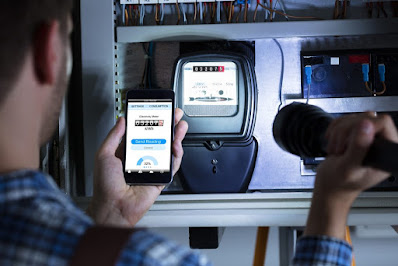Electric heating vs. Combustion Heating – What’s the Greener Choice?
If your goal is to make your building go green in 2020, then one of your most important considerations will be to choose an eco-friendly energy source for heating and cooling. Here’s how combustion heating and electric heating measure up, from leading NJ commercial HVAC contractors.
The Case for and Against Combustion Heating
Combustion heating (for example, gas heating) always results
in a certain level of wastage. You can see this outlined in the AFUE (Annual
Fuel Utilization Efficiency) rating, which shows how much of the fuel your
system uses is actually converted into heat. For example, older commercial
boiler systems tend to have a low AFUE of around 60% or less, which means that
half the fuel you pay for is wasted.
Modern, high-efficiency commercial heating systems are much
better, offering an AFUE of 90% or higher. That being said, unfortunately, some
fuel is still wasted, which means that your building is releasing dangerous
greenhouse emissions into the atmosphere. At the same time, you are reliant on
a fossil fuel to supply the building with heat – a non-renewable resource
that’s not considered green. However, it is a fairly affordable fuel, which may
allow you to redirect savings towards other green upgrades.
The Case for and Against Electric Heating
Electric heating is the most efficient use of fuel since all
your electricity is converted into heat to be used by the system and none goes
to waste. This means that your emissions from your commercial boiler system are
essentially zero, which is great for the environment. However, a lot depends on
how the electricity for your heating system is created. It may come from a coal
power station, for example, which is a big contributor of pollutants and
greenhouse emissions.
Another factor to consider is that in recent years, the
State of New Jersey has been pushing for greater renewable electricity
production by stipulating that more and more electricity produced by power
stations is sourced from renewable energy sources like solar, which is one of
the most eco-friendly sources available. It’s something to consider that will
really increase your building’s green credentials in the coming years.
One of the downsides to electricity is the cost, which can
be substantial when it is used to run commercial heating and cooling systems.
This cost can reduce the capital you have to invest in other green upgrades,
but it may be worth considering one additional, complimentary upgrade to offset
this cost in the long-term – solar.
With solar-generated electricity, your building can reap the
benefits of an efficient energy source for commercial heating and cooling,
while reducing costs. It’s worth it to take a look at New Jersey’s commercial
incentives programs for solar energy if you are considering this route.
High-Efficiency, Cost-Saving Commercial Boiler Systems for
Greener Commercial Buildings (H2)
If your commercial heating systems or commercial boiler
systems require repair, maintenance or replacement, our commercial HVAC company
in NJ is here to assist.
At Tri-Tech Energy,
we specialize in designing, maintaining, and servicing heating and cooling
systems and cutting-edge commercial HVAC systems, as well as commercial
boiler service and repair.
Our commercial HVAC contractors serve the entire New Jersey
area and operate 24 hours a day, 7 days a week, so our emergency repair team is
ready to help whenever you need it.
For more information on our company or services, please
contact us today and speak to a commercial HVAC contractor or visit our website
at https://www.tritechenergy.com/
Original content was posted on https://www.tritechenergy.com/blog/commercial-heating-systems/electric-heating-vs-combustion-heating-whats-greener-choice/


Comments
Post a Comment